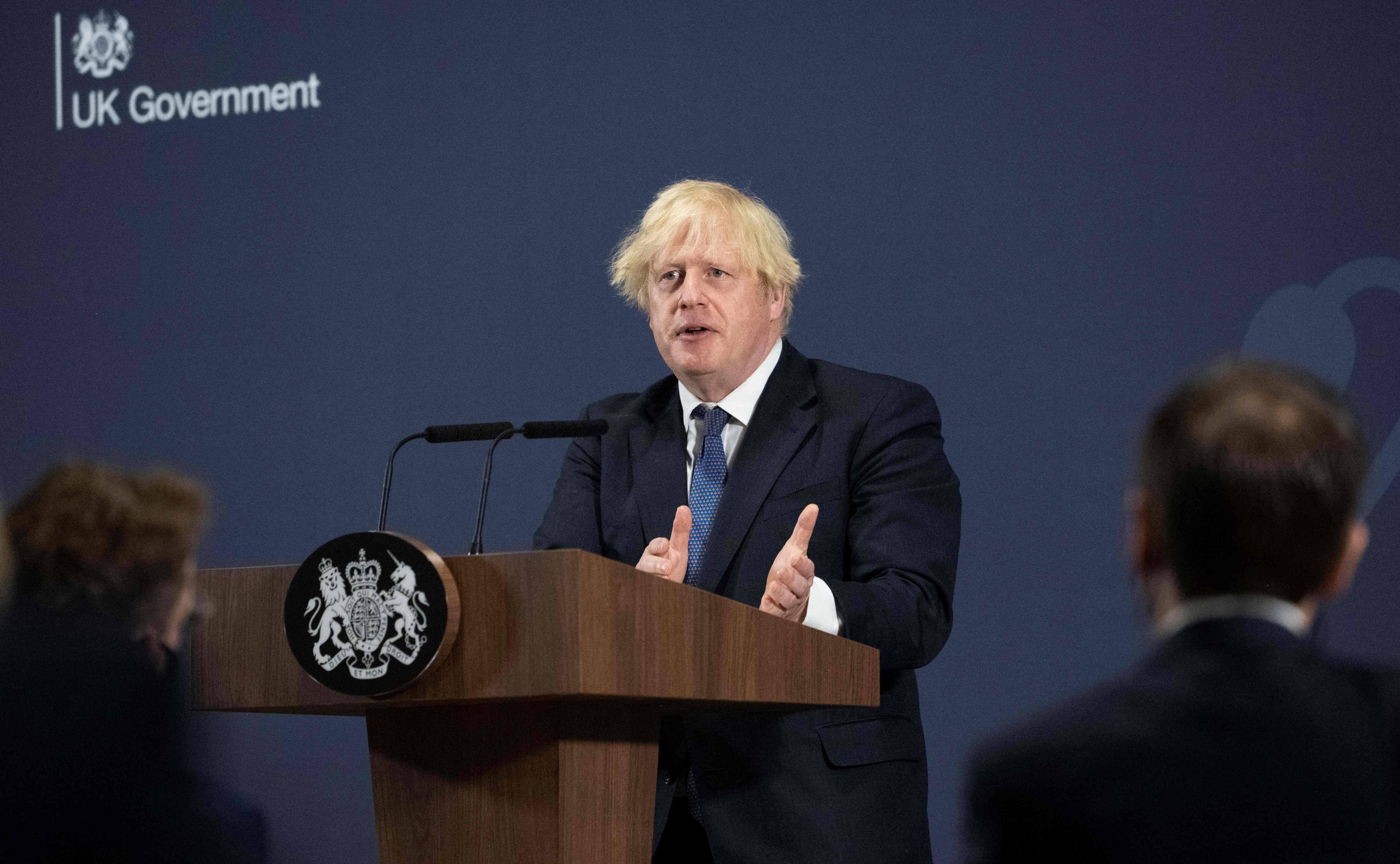Net zero by 2050 is far too late to avert climate catastrophe
There is a yawning gap between our ambitions and the reality the government is delivering. This dithering is dangerous, writes Caroline Lucas


When John Kerry signed the Paris Agreement on behalf of the US in 2016, his young granddaughter sat on his lap – a symbolic gesture underlying the importance of climate action for future generations. It was a brief moment of hope.
Five years later, in a speech at Kew Gardens, he has warned that the world has a “mutual suicide pact” because of failure to match climate targets with action. The US envoy talked about China – he might equally have mentioned his hosts for the speech, the UK.
The UK government has set plenty of climate targets over the past two years, ever since parliament declared a climate emergency in May 2019. But we are still waiting for the policies and a clear plan of action to reach those targets.
Just last week, the government again postponed a plan for reducing emissions from the UK’s notoriously leaky housing stock – millions of gas boilers in people’s homes need to be replaced, and those homes properly insulated to reduce energy bills and keep them warmer in winter.
The transport decarbonisation strategy was anything but. It failed to rule out plans like the hugely destructive £27bn roadbuilding programme and focussed almost exclusively on the switch to electric vehicles. There was no new investment to improve local public transport or promote cycling and walking. And the plans for aviation rely on technology that is bordering on fantasy. There was nothing to address the demand for flying, nor any mention of a frequent flyer levy – which the citizens of the UK Climate Assembly recommended nearly a year ago. This was less “jet zero” as Boris Johnson calls it, more a flight of fancy.
The government’s own advisers, the Climate Change Committee, have pointed to the yawning gap between our net-zero ambitions and the reality of the agenda that the government is currently offering – it doesn’t have a fraction of the policies that we need. Meeting a target of net zero by 2050 is far too late to avert climate catastrophe. You only have to look at the deadly heatwaves in North America, the floods in Europe, the fires in the Amazon and the flooding in China to realise how quickly the climate is breaking down.
The failure of the UK and other countries to take action at the scale and speed required isn’t just harmless dithering – it’s dangerous and often deadly.
Whenever he is challenged on climate action, the prime minister likes to boast of what the UK has achieved over the past two decades. The drop in emissions has come about almost entirely by changing the way we generate electricity, phasing out coal and investing in renewables, a vital transition but one which will have been invisible to most people when they switch on the lights.
What comes next, by contrast, will touch directly on almost every aspect of people’s everyday lives: how we heat our homes and get around, the work many of us do, even the food we eat. Ministers are failing to show leadership on this, yet it’s clear that people want them to move faster.
Each time citizens are engaged with and asked for their views, they come back with similar responses: action on the climate and nature emergencies can do much more than simply stave off the worst, it is a once-in-a-generation opportunity to build a fairer society and economy.
That was the clear message from the four citizens’ juries who were a key part of the IPPR’s cross-party Environmental Justice Commission (of which I am a co-chair).
The Commission has just published its report calling for a new approach to climate action: one that puts fairness at the heart of the transition to net zero. The public holds a veto over this fundamental change to our society and economy – and they will stop it in its tracks if it isn’t fair and they don’t see the benefits.
Our Commission calls for an investment of at least an extra £30 billion a year to move to a cleaner economy that’s also fairer, creating up to 1.7 million good new jobs and ensuring no community is left behind.
More must be done to empower local communities to make the necessary changes where they live and work and where there are more experts than distant politicians and policymakers. This means devolving powers to local authorities so they can develop solutions that are tailored to local needs.
People need to see tangible benefits – warmer homes, cleaner air, better health, greener spaces and greater wellbeing. The Commission’s plan is a blueprint for just that – whether it’s free and expanded local public transport networks or advice and finance for adapting homes to new kinds of heating, via new “GreenGo” one-stop shops. We also call for all workers in high-carbon industries to be given a funded ‘right to retrain’ for new low-carbon jobs.
We urge the government to pluck up the courage to adopt this plan and run with it – safe in the knowledge that those citizen jurors whose ideas helped shape it reflect the values and hopes of millions across the UK.
Caroline Lucas is the Green Party MP for Brighton Pavilion and co-chair of the IPPR Environmental Justice Commission
The Fairness and Opportunity report of IPPR’s cross-party Environmental Justice Commission, can be read here
Join our commenting forum
Join thought-provoking conversations, follow other Independent readers and see their replies
Comments
Bookmark popover
Removed from bookmarks